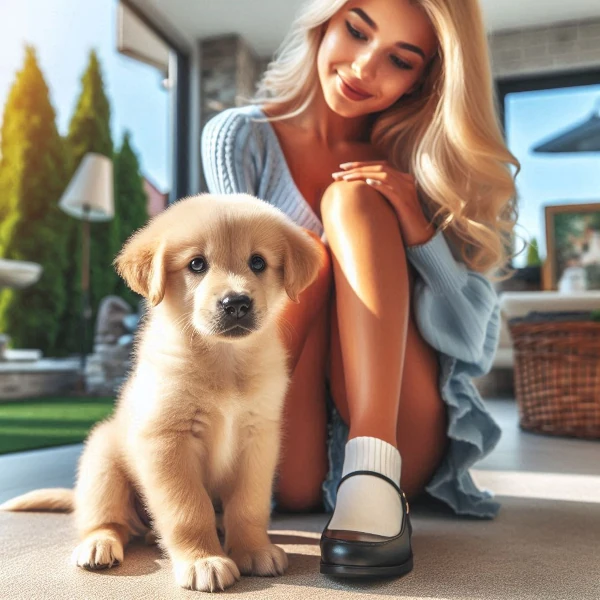How to properly train a puppy from the moment it arrives?
Key Steps to Train Your Puppy
Training a puppy is a crucial step to ensure it becomes a happy companion. A well-trained puppy is easier to live with, safer for itself and others, and more enjoyable to be around.
How to start training your puppy?
Socialization
Socialization is one of the most important aspects of puppy training. It involves exposing your puppy to different situations, people, animals, and environments to help it become balanced and confident.
- Invite friends and family over so your puppy gets used to different people.
- Take your puppy to parks, shopping centers, and other public places.
- Introduce your puppy to other pets, always under supervision.
- If your puppy shows signs of fear to a loud noise, like a car horn, stay calm and reward it with a treat when it relaxes. This helps it associate the noise with a positive experience.
Potty Training
Potty training is an essential step to avoid accidents inside the house. The key is patience and consistency.
- Take your puppy outside regularly, especially after meals, naps, and playtime.
- Always use the same specific phrase like "go potty" so your puppy associates the phrase with the act.
- Reward your puppy with treats and praise when it goes potty outside.
Basic Commands
Teaching your puppy basic commands is essential for its safety and to facilitate communication between you.
- Sit: Hold a treat above your puppy's head and say "sit." When its bottom touches the ground, reward it.
- Lie Down: Ask your puppy to sit, then hold a treat near its nose and move it down to the ground while saying "lie down."
- Stay: Ask your puppy to sit, then say "stay" while slowly backing away. Reward it if it stays in place.
- Come: Call your puppy by its name followed by "come." Reward it when it comes to you.
Repeat the command clearly and reward immediately after execution.
Practice these commands in different environments to reinforce learning.
Managing Biting
Puppies often nip to explore their environment and play. It's important to teach them not to bite too hard.
- When your puppy bites too hard, say "ouch" loudly and pull your hand away. This mimics another puppy's reaction and helps your puppy understand it bit too hard.
- Replace your hand with an appropriate toy so your puppy can nip without hurting you.
- Encourage gentle play and reward it when it shows restraint.
How to Get Your Puppy Used to the Leash?
Learning to walk on a leash is crucial for safe walks. Start early so your puppy gets used to the leash.
- Start by getting your puppy used to wearing a collar and keeping a leash on even at home.
- Practice walking on a leash in a calm environment before going to busier places.
- Use treats to encourage your puppy to walk by your side without pulling on the leash.
Managing Barking
Puppies bark for various reasons, but it's important to teach them not to bark excessively.
- Ignore unwanted barking. Do not react, as this can encourage your puppy to continue.
- Reward silence. When your puppy stops barking, praise it and give it a treat.
- Teach the "quiet" command by saying "quiet" firmly when your puppy barks, then reward it when it stops.
Managing Solitude
Teaching your puppy to stay alone is crucial to avoid separation anxiety.
- Start with short absences and gradually increase the duration. Leave your puppy alone for 5 minutes, then return without making a fuss. Gradually increase the duration to 10 minutes, then 30 minutes, etc.
- Create a comfortable space with toys and a blanket to reassure it.
- Avoid overly emotional departures and returns to avoid stressing your puppy.
Common Mistakes to Avoid
Certain common mistakes can slow down your puppy's training.
- Being too harsh or physically punishing, which can cause fear or aggression.
- Not being consistent with rules and commands. If you allow your puppy on the couch one day and punish it the next, it won't understand what you expect.
- Neglecting socialization or managing solitude.
Conclusion
Training a puppy requires time, patience, and consistency.
Starting your puppy's training as soon as it arrives home is essential for its development and your mutual well-being.
By staying patient, you will build a relationship of trust and respect with your companion.
Remember that each puppy is unique, so adapt your approach based on its needs and temperament.
Other Tips for Dog Owners
© 2023 touslestoutous.com − All doggies. All rights reserved.
"The data available on this site may be used provided that the source is duly acknowledged."
